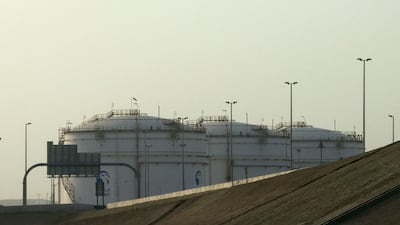Abu Dhabi residents began Monday morning in an ordinary fashion, enjoying a sunny start to the working week after a weekend of rain. By 10am, however, news had broken of a tragedy in Mussaffah, the city’s industrial district, in which an explosion of three petroleum tankers resulted in three deaths and six injuries. A small fire had also broken out in Abu Dhabi’s airport.
Within hours, police investigations pointed to unusual features of the incidents, including the possible involvement of aerial drones. By the day’s end, the UAE confirmed that none of it was an accident; the Emirati capital had suffered an unprecedented attack, orchestrated by the extremist Houthi rebel group controlling large parts of Yemen.
Dr Anwar Gargash, diplomatic adviser to President Sheikh Khalifa, described the operation as a “heinous attack on civilian facilities”, amounting to nothing short of terrorism. Those killed were also civilians, and their loss will be mourned by a country that has long taken every measure to safeguard its population from such outrageous acts of violence. The UAE ministry of foreign affairs issued a statement confirming “the terrorist militia’s targeting of civilian areas and facilities on UAE soil”.
This week will mark eight years since the Houthis, backed by Iran, seized control of the Presidential Palace in Sana’a, shortly after ousting the country’s internationally recognised government. In that time, their war to assert control over the entirety of Yemen has resulted in the deaths of nearly 100,000 people – a quarter of them children – and plunged the country into poverty.
Even at the cost of so much suffering, however, the militants have failed to convince many Yemenis of the worthiness of their cause. In recent days, their ongoing offensives in central Yemen, particularly around the city of Marib, have been hampered by an alliance of local, anti-Houthi resistance forces, including soldiers of the internationally recognised government, supported by the Saudi-led coalition.
The UAE and its partners in the region have made considerable efforts to assist Yemenis suffering under Houthi oppression through support for the Saudi-led coalition and the provision of humanitarian aid, while also seeking a diplomatic end to the war. Thus far, the Houthis have rejected repeated offers from the coalition to negotiate.
The threat of Houthi control is most stark in Yemen itself, where the group has siphoned off humanitarian aid to civilians, enforced draconian laws based on extremist beliefs and conscripted thousands of child soldiers into its ranks. But it extends beyond Yemen’s borders, too. This is evident not only from the regular barrage of rockets fired from Houthi positions into Saudi territory, but also by the attack on Abu Dhabi on Monday.
That the targets in Abu Dhabi were civilian, moreover, highlights the indiscriminate nature of the Houthis’ campaign, and the risks their operations pose to regional stability. The attacks have been supported by terrorist groups and those who sponsor them throughout the Middle East. They are part of a broader pattern of extremists seeking to undermine whatever pockets of stability the region enjoys, emboldened by Iranian sponsorship and diminishing pressure from western powers. Last year, the US State Department removed the Houthis from its list of foreign terrorist organisations.
Achieving peace in Yemen will require continued diplomacy, but also a realistic understanding of what the Houthis are, and what they showed themselves once again to be on Monday – an extremist organisation reliant on terrorism and, most of all, fear. Their brazen attempts to bring that fear to Abu Dhabi failed as the explosions were swiftly brought under control, but that does not mean the world should ignore the dangers they pose.


